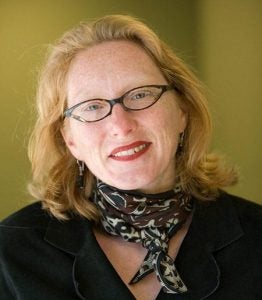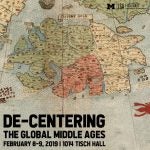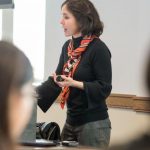 Deep Dive into Digital and Data Methods for Chinese Studies:
Deep Dive into Digital and Data Methods for Chinese Studies:
Workshop on Data Mining the Daoist and Buddhist Canons with DocuSky
Dr. Michael Stanley-Baker 徐源, Nanyang Technological University and Dr. Hu Chijui 胡其瑞, National Taiwan University
In this hands-on workshop, participants will learn to use Docusky and Palladio for large scale analysis of the full-text Buddhist and Daoist canons. You will learn how to search for large term sets, determine their statistical distribution by chapter, and then sort these chapters according to time period, intellectual genre, sectarian attribution and place of origin. You will then learn how to produce simple but powerful visualizations to show the similarities or differences between term clusters in different scriptural groups. This toolset is open access, and the Daoist and Buddhist canons data file will be made available as an open-source, citable document. To read more about and register for this workshop, see the Teaching and Technology Collaborative website listing here.
Dr. Michael Stanley-Baker 徐源 is assistant professor in History and at the Lee Kong Chian School of Medicine at Nanyang Technological University, Singapore. He researches medicine and religion in early medieval and contemporary China. He developed tools for the study of religion and medicine in China with National Taiwan University and the Max Planck Institute for the History of Science, Berlin, and is now developing them for the study of multi-lingual primary sources for medical history across the classical world. He also serves as Vice-President of the International Association for the Study of Traditional Asian Medicine (IASTAM). More information is available at https://michaelstanley-baker.com/digital-humanities/
Dr. Chijui Hu 胡其瑞 is a postdoctoral researcher at the Research Center for Digital Humanities at the National Taiwan University. Dr. Hu received his PhD degree from the Graduated Institute of Religious Studies from National Chengchi University, Taiwan. His research focused on the cultural and history of the minority groups in Southwest China, and now, he wants to put this research into the digital humanities tools to see what may happen.
CJS Thursday Noon Lecture Series | Modern Temple Art as “Public” Art
Yasuko Tsuchikane, Adjunct Assistant Professor, Cooper Union, New York and Waseda University, Tokyo
 Historical Buddhist temples in twentieth and twenty-first century Japan, while often discussed in their association with traditions, can be recontextualized as socio-political and cultural spaces endowed with distinctively modern public natures. This presentation will examine the pictorial art (often paintings) created to adorn these spaces as a specific type of public art by investigating the patronage, production and reception of two groups of such paintings at Tōji (1934) and Saihōji (1969) by Dōmoto Inshō (1891-1975), a pioneer artist committed to the genre, who paved the way for this art form to achieve its current popularity in Japan.
Historical Buddhist temples in twentieth and twenty-first century Japan, while often discussed in their association with traditions, can be recontextualized as socio-political and cultural spaces endowed with distinctively modern public natures. This presentation will examine the pictorial art (often paintings) created to adorn these spaces as a specific type of public art by investigating the patronage, production and reception of two groups of such paintings at Tōji (1934) and Saihōji (1969) by Dōmoto Inshō (1891-1975), a pioneer artist committed to the genre, who paved the way for this art form to achieve its current popularity in Japan.
Yasuko Tsuchikane holds a PhD in Japanese art history from Columbia University and specializes in the 20th century. She teaches at The Cooper Union and at Waseda University in Tokyo. Her current research questions howvarious values authorize the legitimacy of art works across media in different social spaces.
CSAS Lecture Series | “We Were Always Buddhist:” Caste Emancipation and Sexual Politics in South India
 I am a medical and sociocultural anthropologist and interdisciplinary scholar working at the intersection of several fields including feminist, postcolonial and queer theories; religion and secularism; medicine and the body; and South Asia. My research projects in South India and the United States have roots in longstanding engagements with the politics of sexuality, gender and religion. These projects have focused in particular on the body as an artifact of culture and power in relation to questions of sexual subjectivity, social transformation and citizenship projects. I have conducted research in the US on sexual ‘risk’ and transsexual medicine and in South India on ‘sacred prostitution’ (devadasi dedication) and Dalit conversion to Buddhism.
I am a medical and sociocultural anthropologist and interdisciplinary scholar working at the intersection of several fields including feminist, postcolonial and queer theories; religion and secularism; medicine and the body; and South Asia. My research projects in South India and the United States have roots in longstanding engagements with the politics of sexuality, gender and religion. These projects have focused in particular on the body as an artifact of culture and power in relation to questions of sexual subjectivity, social transformation and citizenship projects. I have conducted research in the US on sexual ‘risk’ and transsexual medicine and in South India on ‘sacred prostitution’ (devadasi dedication) and Dalit conversion to Buddhism.
My first book, Given to the Goddess: South Indian Devadasis and the Sexuality of Religion (Duke University Press, 2014), is an ethnography of a contemporary practice in which girls are married to a goddess. I take this ongoing practice and its reform as an occasion to consider what can count as religion and who and what marriage is for. In 2015, Given to the Goddess received the first Michelle Rosaldo best first book prize in Feminist Anthropology, the Ruth Benedict prize from the Association for Queer Anthropology, and the Clifford Geertz Prize for best book in the anthropology of religion from the Society for the Anthropology of Religion. The book also received honorable mention for the best book in South Asian Studies from the Association for Asian Studies in 2016.
I serve as the director of graduate studies in the Feminist, Gender, and Sexuality Studies program. In college and university service, I am a member of the core faculty of the Nilgiris Field Learning Center, a Cornell-Keystone Collaboration; a member of the Humanities Council, Society for the Humanities; a member of the Qualities of Life Working Group, Einaudi Center; a member of the steering committee for Faith, Hope and Knowledge: Interfaith Dialogues for Global Justice and Peace, Einaudi Center, and a member of the Provost’s Social Sciences Idea Panel, 2017-present.
 A symposium on “De-Centering the Global Middle Ages” will be convened from February 8-9, 2019. James Benn (McMaster University) will give a talk entitled “Buddhist Middle Ages in China?” See the symposium website for more details.
A symposium on “De-Centering the Global Middle Ages” will be convened from February 8-9, 2019. James Benn (McMaster University) will give a talk entitled “Buddhist Middle Ages in China?” See the symposium website for more details.
On Wednesday, March 13, Rebecca French, Professor of Law at the University at Buffalo School of Law, will give a lecture entitled “Why Buddhism and Law Has Been Excluded from the Canon” as the University of Detroit Mercy School of Law’s 21st annual McElroy Lecture on Law and Religion.
The lecture will explore why the discipline of Buddhism and Law has never been accepted in the West as a type of Religion and Law, despite the fact that the Buddha inspired a law code that has been called the founding charter of Buddhism. French will discuss this phenomenon against the background of Buddhist history, early Christianity and the dominance of the Holy Roman Empire as a model of state and religious law. She will also explore the role of colonialism in excluding Buddhism and Law from the canon of comparative religious law.
CSEAS Friday Lecture Series | Neither Mahāyāna Nor Theravāda: Ashin Jinarakkhita and the Indonesian Buddhayāna Movement
Widely regarded as the first Indonesian-born Buddhist monk (biksu pertama putra Indonesia), Ashin Jinarakkhita took it as his mission to propagate Buddhism in the archipelago nation. His Buddhayāna movement, which combined the doctrines and practices of Mahāyāna and Theravāda Buddhism, had a profound impact in Indonesia during the second half of the twentieth century. Ashin Jinarakkhita established an inclusive and nonsectarian monastic community, consisting of Sangha from various Buddhist traditions. He crafted a vision of Indonesian Buddhism as a diverse, yet unified religion in line with the motto of “Unity in Diversity” (Bhinneka Tunggal Ika) of the modern Indonesian nation. Later, he introduced the concept of “Sang Hyang Adi-Buddha” to make Buddhism compatible with the first principle of the Pancasila, the five philosophical pillars of Indonesia during the New Order era (1966–98). The Buddhayāna movement continues to attract a following of Indonesian people in the twenty-first century.
This presentation draws upon Ashin Jinarakkhita’s career to reconsider the category of Southeast Asian Buddhism in Buddhist Studies. I argue for the need to broaden the category of Southeast Asian Buddhism beyond Theravāda Buddhism on mainland Southeast Asia to include varied forms of Buddhism in maritime Southeast Asia that use Mandarin Chinese, Southern Chinese dialects, and Southeast Asian languages in their liturgy and scriptures. Ashin Jinarakkhita’s Buddhayāna movement, which promoted nonsectarian doctrines and practices to be in line with the national discourse of “Unity in Diversity,” was a calculated strategy to ensure the survival of Buddhism as a minority religion in the world’s largest Muslim nation.
Jack Meng-Tat Chia is a Senior Tutor in the Department of History at the National University of Singapore and currently a Postdoctoral Fellow at the Center for Buddhist Studies, University of California, Berkeley. His research focuses on Buddhism in maritime Southeast Asia, Chinese popular religion, overseas Chinese history, and Southeast Asia-China interactions. He is currently completing his first book manuscript titled “Monks in Motion: Buddhism and Modernity across the South China Sea,” which explores the history of Buddhism in inter-Asian contexts and the intersections between national and Buddhist institutional projects in Indonesia, Malaysia, and Singapore. Chia is co-editor of Living with Myths in Singapore (2017) and has published articles in journals such as Archiv Orientální, Asian Ethnology, China Quarterly, History of Religions, Journal of Chinese Religions, Material Religion, and Sojourn. His next book project, “Beyond the Borobudur: Buddhism in Postcolonial Indonesia,” focuses on the history and development of Buddhism in the world’s largest Muslim country since 1945.
There will be a gallery tour and talk for the upcoming exhibit at the University of Michigan Museum of Art entitled “The Six Senses of Buddhism.”
From the new exhibit’s description: “Focusing on works from UMMA’s collection associated with different types of Japanese Buddhism, we engage all of the six senses in this exhibition. These six are integral to Buddhist devotion: sight, hearing, smell, touch, taste, and mind (or the activity of thinking, including what is perceived via the other senses). The “Six Senses” gallery experience extends beyond vision to include: the sound of chanting and ritual implements; the fragrance of incense; the feel of bronze, ceramic, and silk; and the creation of mental images. Gain a deeper understanding of the nature and histories of objects used in Buddhist practice with a docent tour of this fascinating exhibition.”
More information and other exhibit-related events can be found on the UMMA website.
CSEAS Friday Lecture Series | The Thousand Year Old Stolen Burmese Buddha Who Traveled The World And The Saga Of Its Return
Catherine Raymond, Associate Professor of Art History, Northern Illinois University
This presentation will profile the return of a rare Buddha image that was stolen from a remote temple in Bagan in 1988 and would travel around the world before finally being returned to its home country in 2012. This long saga, which involved looters, antique dealers, art historians, lawyers, ambassadors and curators, demonstrates the intricate complexities in restituting objects. The priceless sculpture was transported from Myanmar (also known as Burma) to Bangkok, San Francisco, New York, Chicago and Paris. It would be saved from the auction block, before drawing the involvement of the Federal Bureau of Investigation and becoming the subject of a precedent setting lawsuit for antiquities.
 LRCCS Noon Lecture Series | A Whiff of Nirvana: On Why Chinese Buddhists Were Not Vegans
LRCCS Noon Lecture Series | A Whiff of Nirvana: On Why Chinese Buddhists Were Not Vegans
Medieval Chinese Buddhists were some of the world’s most strident animal rights activists. Monks and devout lay people swore off meat and wrote moving accounts about the suffering of animals. Yet the concern with animal welfare did not make vegans out of them. Monasteries kept loads of cream in their pantries and sheep on their lands. This talk explains why.
Miranda Brown is a Professor of Chinese Studies in the Dept. of Asian Languages and Cultures who has taught Chinese history at the University of Michigan since 2002. In old age, she has discovered her true passion: Chinese food. She is now writing a book on the history of dairy in premodern China. In her free time, she chronicles her efforts to re-imagine Chinese food with lots of milk in her blog (http://www.chinesefoodhistory.org) and on Twitter (@Dong_Muda).
CSEAS Lecture Series | Crafting Theravada Buddhism: Touch and Material in the lives of Thai Buddhists
Forming, touching, and repairing Buddhist objects and architecture are central to the religious lives of Thai Buddhists, be they monks, craftspeople, or laypeople. Thai historical chronicles, local legends, and everyday discourse position the intentional physical contact with Buddhist material (through ritual and everyday labor) as generating spiritual benefit and constructing ethical values. Drawing on historical analysis and ethnographic work, this talk presents a number of cases that show how Thai Buddhists hold hand-based religious touch to be spiritually powerful and socially efficacious.



